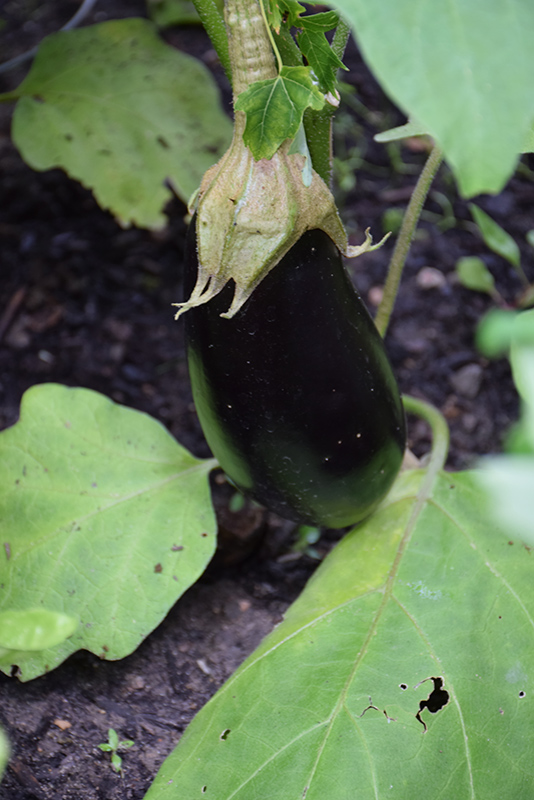Plant Library
Vittoria Eggplant
Solanum melongena 'Vittoria'
Height: 3 feet
Spacing: 18 inches
Sunlight:
![]()
Hardiness Zone: (annual)
Description:
An easy to grow, easy to harvest variety perfect for large containers and sunny gardens; produces excellent yields of deep purple-black eggplants that reach 9" long; mild and tender flavor, wonderful for slicing, grilling, frying and baking
Edible Qualities
Vittoria Eggplant is an annual vegetable plant that is typically grown for its edible qualities, although it does have ornamental merits as well. It produces deep purple oblong eggplants (which are technically 'berries') with creamy white flesh which are typically harvested when mature. The eggplants have a mild taste and a firm texture.
The eggplants are most often used in the following ways:
- Eating When Cooked/Prepared
- Cooking
- Baking
- Pickling
- Freezing
Planting & Growing
Vittoria Eggplant will grow to be about 3 feet tall at maturity, with a spread of 30 inches. When planted in rows, individual plants should be spaced approximately 18 inches apart. This fast-growing vegetable plant is an annual, which means that it will grow for one season in your garden and then die after producing a crop.
This plant can be integrated into a landscape or flower garden by creative gardeners, but is usually grown in a designated vegetable garden. It should only be grown in full sunlight. It does best in average to evenly moist conditions, but will not tolerate standing water. It is not particular as to soil pH, but grows best in rich soils. It is somewhat tolerant of urban pollution. This is a selected variety of a species not originally from North America.
Vittoria Eggplant is a good choice for the vegetable garden, but it is also well-suited for use in outdoor pots and containers. With its upright habit of growth, it is best suited for use as a 'thriller' in the 'spiller-thriller-filler' container combination; plant it near the center of the pot, surrounded by smaller plants and those that spill over the edges. It is even sizeable enough that it can be grown alone in a suitable container. Note that when growing plants in outdoor containers and baskets, they may require more frequent waterings than they would in the yard or garden.





